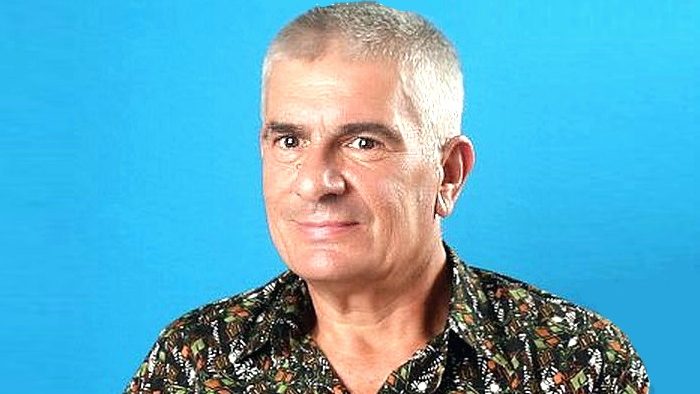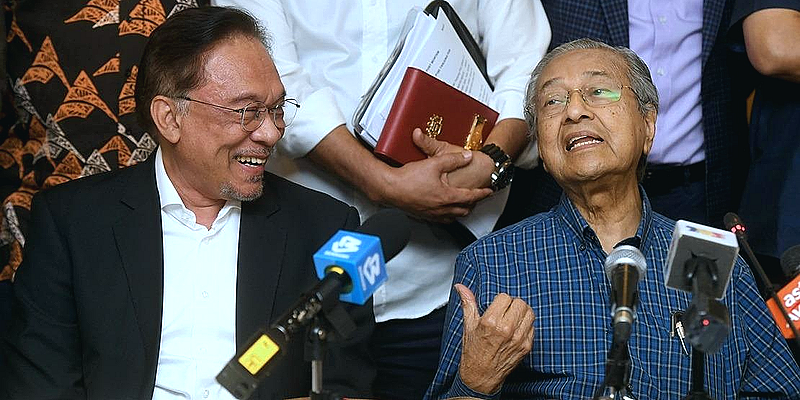
Dr. Mahathir Mohamad’s accusations of defamation against Anwar Ibrahim could be the last chapter of the 25-year feud between the two of them.
Anwar said at a Party Keadilan Rakyat (PKR) conference that “a person who led the country for 22 years and 22 months had used his position to enrich himself and family.”
These remarks led Mahathir to issue a letter of demand from his lawyer for Anwar to retract his statement and apologize.
Anwar has no intention of apologizing, and Mahathir’s challenge has led to Anwar stating he will provide proof to back the statement made at the party congress.
The gauntlet has been thrown down, which could well end up in uncharted territory.
Anwar was initially groomed by Mahathir as his successor within Umno during the 1990s. Together, Mahathir and Anwar nurtured crony capitalism in their quest to create Malay multi-millionaires under the pretext of the NEP.
They introduced quotas and APs to favor connected businesses.
Project IC was conducted in Sabah to swing the balance of voters towards Sabah Umno which they created.
They Islamized education and the civil service, and founded JAKIM aimed at taking Islamic authority away from the states.
Mahathir and Anwar’s relationship began to have friction over the management of the Asian Financial Crisis in 1997.
Anwar wanted to implement IMF recommendations which were filled with austerity measures, while Mahathir wanted to peg the falling ringgit to the US dollar at a fixed exchange rate to protect the Malaysian economy from currency freefall.
In September 1998, Mahathir stripped Anwar of all his party and government positions. A few weeks later, after street protests supporting him, Anwar was publicly arrested at his home on charges of sodomy and corruption.
The deeply humiliated Anwar was bashed by the then IGP, and was put on a show trial reminiscent of the Soviet era.
The effect of the trial was to give Anwar public exposure during the trial, where sodomy and all its details became household chat.
The Malaysian society lost its innocence. The trial also opened up the weaponization of the legal system as a tool of the government of the day. This received widespread criticism around the world.
Mahathir’s move against Anwar ignited the Reformasi and Free Anwar movements. This ironically stuck the first blow in the slow demise of Umno.
Party Keadilan Rakyat was formed, and through Anwar’s plight, all opposition parties united under Pakatan Rakyat, later Pakatan Harapan.
This eventually led to a Pakatan Harapan government.
The Mahathir-Anwar relationship appeared to thaw before the 2018 general election, where the common objective was to defeat Umno leader and then prime minister Najib Razak.
PH supported Mahathir as leader in exchange for his pledge to obtain a pardon for Anwar, if they won the election.
Mahathir would then stand aside and allow Anwar to make the transition to leader and prime minister. Anwar became the “prime minister in waiting.”
As time went on during Mahathir’s second stint as prime minister, it was clearly becoming evident that Mahathir had other ideas about handing over power to Anwar.
Mahathir appointed Anwar’s former second in command Azmin Ali as a senior minister, partly as a tactic to irritate Anwar. Mahathir also backtracked on many of PH’s reforms.
Finally, Azmin Ali, along with Muhyiddin Yassin, engineered what is now known as the Sheraton Putsch to bring down the PH government and replace it with a Malay-centric government.
Mahathir’s surprise resignation brought the government tumbling down. He was reappointed caretaker prime minister without the rest of the cabinet. This flaunted Anwar’s moves to become prime minister, shifting power far away from PH.
This was the second betrayal of Anwar by Mahathir in two decades.
Ironically, Mahathir’s focus upon bringing down Anwar, Abdullah Ahmad Badawi, Najib Razak, and Tunku Abdul Rahman before them, has divided the Malay vote.
Now Malay support is split among a number of Malay-centric parties.
Mahathir actually destroyed the concept of mythical Malay unity and replaced it with a Machiavellian Malay political culture.
Mahathir contributed to creating Anwar as an alternative that many people today place absolute faith in. Mahathir created a martyr out of Anwar, resulting in his charismatic political persuasiveness.
In this way, Mahathir has become a victim of his own spite.
Mahathir is now dealing with an Anwar who has all the tools of power Mahathir created. We can only speculate whether Anwar will actually use them against Mahathir.
One is observing that Mahathir is pushing Anwar to the limit.
This could be something Mahathir, his family and cronies may live to regret. No one can expect Anwar, who has been personally and professionally hurt in such a way over the years, to not react.
Mahathir’s judgments over the last few months have been highly questionable.
He led his Pejuang to a humiliating defeat in the general election. He personally lost his electoral deposit in Langkawi. He is now politically estranged with his own son. This is a sad ending for a man who could have gone on from his stepping down as Malaysian prime minister in 2003 to become secretary-general of the United Nations had he wanted to.
That’s the tragedy. The younger generation will never learn about some to the good things he did for Malaysia back in the 1980s. They will only see Mahathir as a destroyer. His legacy for the nation has been lost.
Now we can sit back and watch what should be the last chapter in the Mahathir-Anwar relationship.

(Murray Hunter has been involved in Asia-Pacific business for the last 40 years as an entrepreneur, consultant, academic and researcher. He was an associate professor at Universiti Malaysia Perlis.)
ADVERTISEMENT
ADVERTISEMENT








































